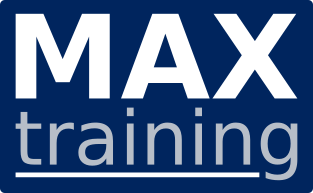VMware NSX: What's New [V4.0]-On Demand
Code: EDU-NSXWN-ELIn this course, equivalent to 2 days of training, you will explore and gain hands-on experience with the new features and functionality offered in the VMware NSX® 4.0.0.1 and NSX 4.0.1 releases. These features and functionalities include architectural and operational enhancements, DPU-based acceleration support, external management of NSX with IPv6, and security and NSX Federation improvements.
Audience
Network and security administrators, VMware partners, and individuals responsible for managing NSX environments
Prerequisites
- This course requires completion of the VMware NSX-T Data Center: Install, Configure, Manage course or equivalent knowledge and administration experience with VMware NSX-T™ Data Center 3.2 or later.
- The VMware Certified Professional – Network Virtualization (2022) certification is recommended.
- The following knowledge is also beneficial:
- Good understanding of TCP/IP services and protocols
- Knowledge and working experience of computer networking, including switching and routing technologies (L2 through L3) and L2 through L7 firewall
- Knowledge and working experience with VMware vSphere® environments
- Knowledge and working experience with Kubernetes or VMware vSphere® with VMware Tanzu® environments
Objectives
By the end of the course, you should be able to meet the following objectives:
- Prepare your environment to upgrade to NSX 4.0.x
- Migrate the N-VDS host switch to VDS from the UI, CLI, and API
- Explain the architectural and operational enhancements of NSX and VMware NSX® Edge™ nodes
- Install NSX using DPU-based acceleration hardware
- Configure external management of NSX using IPv6 and BFDv6 on static routes and BGP sessions
- Describe new user roles, role-bindings, and security policies in the NSX multitenancy model
- Configure the distributed firewall to block malicious IPs and oversubscription behavior for IDS/IPS
- Describe Malware Prevention and VMware NSX® Intelligence™ enhancements
- Describe NSX Federation enhancements in brownfield onboarding, security, and L2 bridging
Product Alignment
- NSX 4.0.0.1 and NSX 4.0.1
Course Outline
1 Course Introduction
- Introductions and course logistics
- Course objectives
2 Infrastructure Preparation
- Explain the VMware NSX name change
- Enumerate the deprecated features in NSX 4.0.0.1
- Describe the NSX upgrade enhancements
- Describe the requirements to migrate the N-VDS host switch to VDS
- Migrate the N-VDS host switch to VDS from the UI, CLI, or API
3 NSX Architecture and Operations
- Describe the performance benefits in introducing Envoy as a reverse proxy for NSX Manager
- Explain the NSX multitenancy data model
- Identify operational and CLI enhancements in NSX
4 NSX Edge Enhancements
- Describe the NSX Edge container-based architecture
- Configure stateful active-active services on NSX Edge nodes
- Perform Live Traffic Analysis on an NSX Edge node
- Describe L3 Time-Series Metrics improvements and CLI enhancements for NSX Edge.
5 DPU-Based Acceleration for VMware NSX
- Describe the use cases and benefits of DPU-based acceleration
- Explain the architectural components of a DPU
- Describe the hardware and networking configurations supported with DPUs
- Define the NSX features supported by DPUs
- Install NSX using DPUs
- Perform basic troubleshooting on DPUs
6 IPv6 Enhancements
- Explain IPv6 addressing
- Describe the Neighbor Discovery Protocol in IPv6
- Explain external management of NSX with IPv6
- Configure BFDv6 on static routes and BGP sessions
7 Security Enhancements
- Describe new user roles, role-bindings, and security policies in the NSX multitenancy model
- Configure the distributed firewall to block malicious IPs
- Configure the oversubscription behavior for IDS/IPS
- Describe the Malware Prevention enhancements
- Describe the usability, visualization, and recommendation enhancements in NSX Intelligence
8 Federation Enhancements
- Describe the architecture of an NSX Federation environment and stretched networking and security capabilities
- Identify use cases for LM brownfield onboarding
- Describe NSX Federation Traceflow
- Compare cross-location latency limitations in federated environments
- Explain the benefits of L2 Bridging in NSX Federation
- Describe distributed firewall improvements for NSX Federation
Price (ex. VAT)
Duration
Schedule
Please send us a message with the form below
Delivery methods
- Classroom
- On-site (at your location)
- Virtual (instructor online)
Inquire
We will contact you to discuss your requirements
